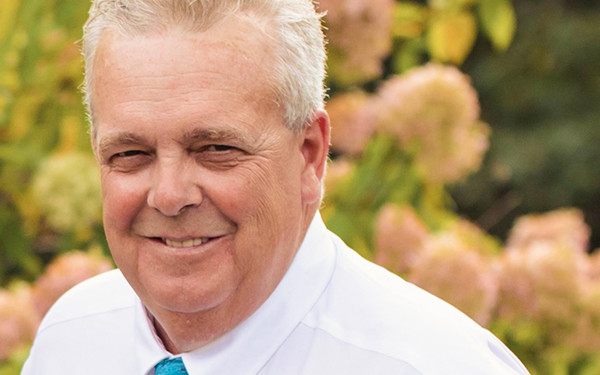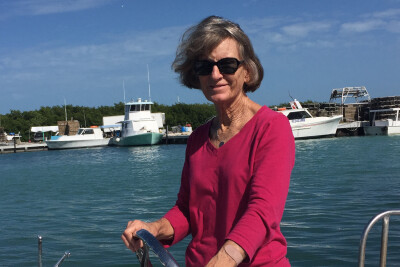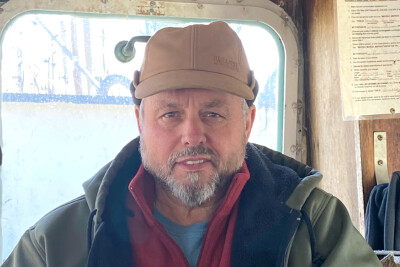Terry Alexander remembers when northern shrimp were abundant in the cold waters of coastal Maine.
“We used to do really well shrimping. I shrimp fished from the 1970s on – until probably around 2010. When we had a season, it used to be a nice little hit for the local economy for the different small towns. It was something we could land in Cundy’s Harbor and be competitive [with] places like Portland. It made a huge difference…and brought jobs to the local economy.”
In 2010, when Alexander was still catching shrimp, Maine fishermen landed 255,765,092 pounds of shrimp with an ex-vessel value of over $456 million.
Alexander, 61, has spent his life as a commercial fisherman in Cundy’s Harbor, Maine, a small fishing village on a narrow peninsula between a cove and the mouth of the New Meadows River. Over his career, he has experienced firsthand the peaks and troughs of commercial fishing, including the shuttering of the Maine shrimp fishery, which saw its last season in the Gulf of Maine in 2013. A moratorium, which is still in effect, was placed on the fishery because the shrimp population had collapsed.
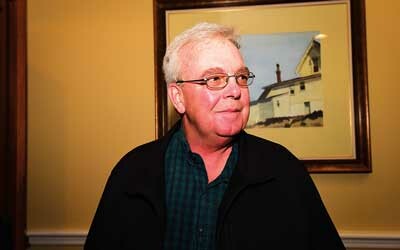
“It sucked,” says Alexander. “There were a lot of boats on the coast of Maine that depended on that for income in winter. Half the lobstermen used to shrimp, back then.” Alexander says he does not expect to see a shrimp fishery come back to Maine in his lifetime. That sort of loss, he admits, goes beyond money.
“It was a historical Christmas meal, and people couldn’t wait for it for their Christmas meal. My family would eat it. My mom would make shrimp stew, shrimp dip; it was a big part of the culture along the coastline.” He remembers seeing trucks parked all up and down the Maine coast with “fresh shrimp” signs on them. “It was its own cottage industry.”
Dr. John Quinn, a former chairman of the New England Fisheries Management Council (NEFMC), has known Alexander for over a decade – and they were appointed to the NEFMC together in 2021. He considers Alexander to be one of the best in the business and says that despite the hardships of fishing, “he’s an optimistic guy on all fronts.”
“He’s got a combination of skill and likability – and he’s a fun guy to be around while working on important things.” Quinn says Alexander describes himself as “a graduate of Gulf of Maine University,” – which is funny but also something he respects about his friend, how fishing and working on management has taught Alexander everything.
Alexander’s education in commercial fishing started early. “I’ve been fishing my entire life…as soon as I went fishing, I knew that’s what I wanted to do,” says Alexander. His dad first took him out, but his grandfather and great-grandfather were also fishermen. In those early days going out to fish shrimp and groundfish, Alexander would get seasick.
“I’d beg [my Dad] to take me back out! I still get seasick, but I’m a lot better now.”
He says despite the seasickness, he never stopped fishing. “I worked my way up, until age 21, when I got in the wheelhouse. I bought my first boat at 28, F/V Miss Paula, a 70 ft shrimp, and groundfishing boat. We’d also fish for pogies.” Nowadays, Alexander fishes in his 62-foot F/V Jocka (pronounced “joker”), a dragger built in Cundy’s Harbor following a design by builder Dain Bichrest. He fishes for cod, haddock, hake, monk, and other groundfish, and in the spring, he targets squid in the mid-Atlantic and around Nantucket.
He says the squid and groundfish fisheries are in great shape. “We’re catching more fish than I’ve ever seen before; haddock, monk, hake…more fish than I’ve seen in 40 years!”
But this is bittersweet since there are dramatically fewer fishermen going after groundfish these days. “There might be 25 boats from New Bedford to Maine that are competitively groundfishing.” Alexander identifies as an independent owner-operator and sells most of his catch to a longtime fishing industry family in Massachusetts.
Alexander’s long career is also distinguished by service on the management side. He has participated in cooperative research on his boats, from Nordmore grate work in the northern shrimp fishery to the industry-based cod survey for the State of Massachusetts in the Gulf of Maine. He also served one term on the Mid-Atlantic Fishery Management Council in 2009 and was appointed to three terms on the New England Fishery Management Council from 2012 to 2021.
“It’s awful tough for fishermen to be participants in these meetings, and he made every effort,” adds Quinn. “He’s really dedicated a decade of his life pursuing management opportunities. He’s a great advocate and a great voice. Mixing his knowledge with his earned respect, even those on the other sides of issues would appreciate his approach. He’s really put…not only a decade of service on the council but a career of service.”
Alexander remains humble about being recognized as an industry leader. “I have survived by being able to adapt to different things. You gotta be diverse; you gotta be able to do a lot of different things: you gotta be a mechanic, an electronics guy, a lot of things. I’ve always been able to make a living doing it, but we’ve had to zig and zag to pay the bills sometimes. You’ve got some good friends who’ve done it – and maybe someday you can return the favor.”
He says it would be hard to imagine a life without fishing. But there was one job he may have done – shipbuilding. “I would have worked at the Bath Iron Works, like everyone else. Back in the day, you worked at Bath Iron Works or went fishing, there really weren’t a lot of options then.”
Even though his own daughters have not followed him into fishing, he is supportive of their paths.
“I’m glad…it’s not an easy life at all. But I think it’s a good living. I’m happy I’ve been a fisherman my whole life. But not every day is the Fourth of July, is it? I hope I never have to go into an office. I can’t figure a way to catch fish from an office.”
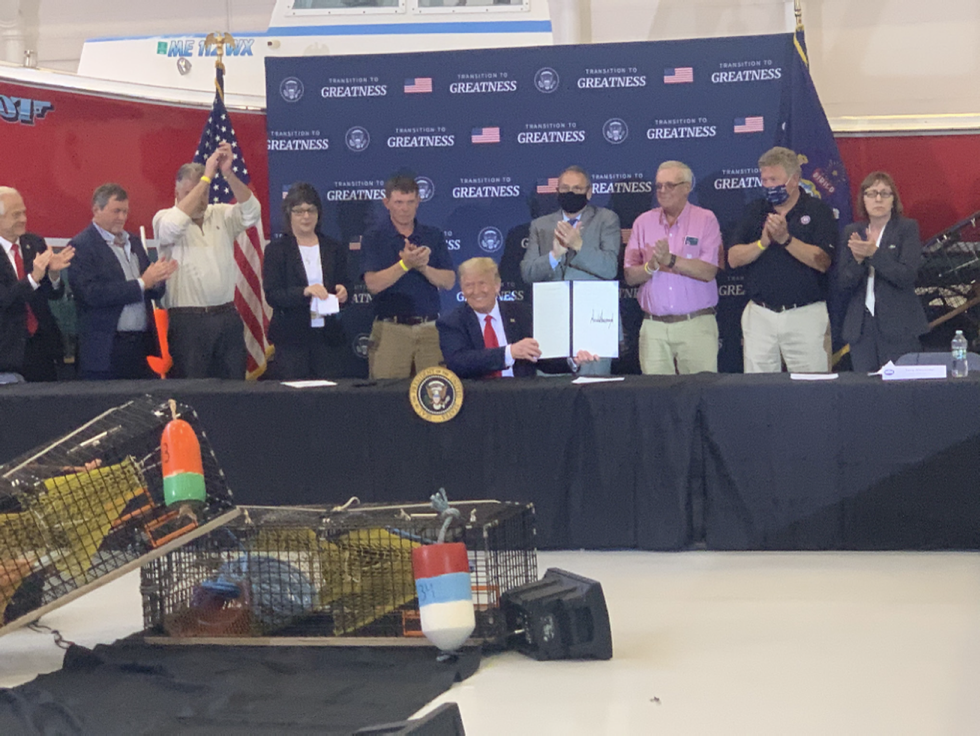
“You got a guy like me [that] grew up very poor, and I made a decent living fishing. That makes me happy.” Because he started fishing so young, he dropped out of high school. “I went back and got my GED later, when I was 20 [and] that was because I started dating my wife [and] she came from a family of teachers. I did it for her.”
Overall, Alexander is content with a career and lifestyle that suits him. “We’re a weird bunch, me included. We don’t march to the land-based drum. We would not do well in an office most of us. I think that we’re unique because we can’t function on land as well as on the boat. If we’re on the boat, we have freedom.”
Nowadays, when Terry Alexander is not out on the water, he enjoys traveling with his wife, Kathy, and spending time with his grown kids and family. He says he thinks one big part of his legacy is to be recognized for being a hard worker. “Hopefully, I did the right thing for everybody in the fishery; try to be fair. I think what’s good for me is good for them.”
“You don’t always end up where you started. I got in this to catch fish and make money– and here I am trying to save the ocean! You end up forming a relationship with that which you’re depending on.”
 |
|





